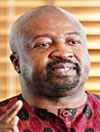GUYANESE who bother to pay attention to politics tend to be so wrapped up in our local politics that we have collectively become oblivious to what is happening in the rest of the world, particularly in our Caribbean. I make this observation with the awareness that, thanks to the domination of local TV stations by American programing, there seems to be a little more awareness of what is happening in that country — at least at the political surface.However, I think that in the long run, our nation is less informed about the rest of the Caribbean and the world at large. This is quite a departure from what obtained a generation ago, when, ironically, there was no television, there were fewer radio stations, and there was no Internet. Yet there was more of a consciousness of our country as part of the Caribbean beyond carnival and dancehall music.
Today we have the overpowering presence of social media — they are in our faces around the clock. Participation is not confined to any single race, class, gender, ethnicity or nationality; it’s universal. But are social media really empowering? Have they expanded space for social and political action? Are they an effective medium of political and public education?
Some have argued in the affirmative –that these social media have increased political activism and consciousness. In fact, some activists, especially youth activists, have confined their activism to social media, and swear by its effectiveness. They point to the fact that they are able to meet more people, especially young people, through these media. But does that actually translate into real empowerment and expanded space?
I have always cautioned against the over-reliance on social media for mobilization and activism. My contention is that, despite the pervasiveness of social media, they have not expanded space for political participation and activism in Guyana. I say this as someone who uses social media as part of public scholarship and political education, and who observes the behaviour of Guyanese on these media. There is a way in which poor people of all ages, for example, are locked out of those media for economic reasons — it costs money to subscribe to Internet plans, obtain Wi-Fi, and buy computers; so there are class limitations to social media, which in turn limits their effectiveness as mobilization tools.
What flows from that is that most people, especially poor people, do not use social media as sources of public education and information-gathering. Most participants seem to be more drawn to social posts and events of a non-political nature. They simply do not go to social media for hard news and political analysis and education. Perhaps because most of them are part-time users (for economic reasons), they tend to prioritize what they read and post.
So while there is a core group of readers who engage in serious discourse, the wider social media population does not participate. I have observed, for example, that while there is a huge population on Facebook, the percentage of participants who actually read news and commentaries and engage in discussion is extremely small. There is a very small group of readers and posters who make the rounds on the Guyanese pages. On Facebook, for example, a story may generate a high volume of “likes”, but few people actually read the story. Others read the headlines and post comments without bothering to read the actual content of the stories.
The second observation is that interest tends to be very parochial, with almost every issue that grabs the attention of Guyanese people having to do with Guyana. The small exception tends to be American politics, which largely has to do with the large Guyanese diaspora in that country and the prevalence of American TV in Guyana.
My posts, for example, about Caribbean news and discourses are often ignored, even by the regulars. This is very frightening for us as a Caribbean people, primarily because our futures are invariably tied up with our Caribbean integration.
The third observation about social media and public education is the tendency for sensationalism and partisan and ethnic intolerance. Maybe this has an impact on the very low participation on the part of many young people on social media. Government supporters are extremely aggressive in this regard. They push back against any criticism of the Government is total, and posts about Jagdeo tend to excite increased readership and commentary, much of which is very unreasonable and hateful. On the other side, there is a persistent and equally distasteful barrage by PPP supporters. Social media therefore become an extension of the political and ethnic fear and hate that have dogged Guyana for so long.
Am I making a case against social media? Absolutely not! I am cautioning against overplaying their significance as political and social activism, and against seeing them as a substitute for face to face grassroots activism in communities. My preliminary thought is that social media are more supplementary to the latter rather than substitutes.
In the long run, we still have to address the issues of greater political participation, and mass education of the citizenry about Guyana, the Caribbean and the world at large. Democracy withers when the population is less informed and mass participation beyond voting decreases. I have always been amazed at how political parties, in their quest for office, wittingly and unwittingly suppress political participation.
Many people, particularly young people, believe that social media are the answer to this suppression. I have my doubts.
More of Dr. Hinds ‘writings and commentaries can be found on his YouTube Channel Hinds’ Sight: Dr. David Hinds’ Guyana-Caribbean Politics and on his website www.guyanacaribbeanpolitics.com. Send comments to dhinds6106@aol.com




.png)








